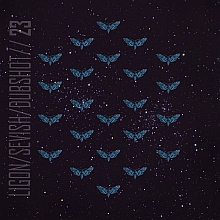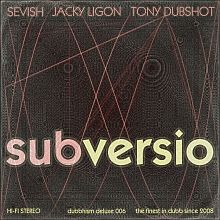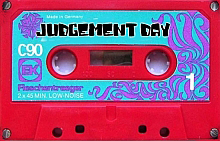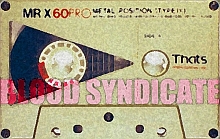Politrix and music don't have a very strong link usually. But if the communist Hungarian regime had not banned some of his music because of decadence György Ligeti might have been less inspired.
Ligeti, who was born in Transsylvania, used medieval vocal polyphony from the Low Lands as a starting point for Lux Aeterna.
In the case of the Fluxus-piece Poème Symphonique for 100 metronomes there's also a Low Lands connection. Ligeti recalls the premiere in 1963 in the city hall of Hilversum:
"The Mayor of Hilversum - wearing his traditional dark blue suit with a silver saber at his belt - and the Spanish ambassador, with a red-yellow-red cockade, gave official speeches. Both spoke of the sublime spiritual value of musical art."
Ligeti had managed to get 100 metronomes on loan and ten people dressed in tuxedo's were being directed by the maestro, who was himself dressed in an oversized rented suit. Dutch tv filmed the event.
"Since the audience had never heard of Fluxus, and since John Cage, too, was as yet completely unknown to the invited nobility and citizens of Hilversum, the last tick of the last metronome was followed by an oppressive silence."
The Poème Symphonique never made it to Dutch tv. They showed a soccer game instead.
"It turned out that the program had been prohibited at the urgent request of the Hilversum Senate - although in the liberal Netherlands there was supposed to be no censorship".
skip to main |
skip to sidebar
free will is for losers
~ mode selector ~
~ Libellés ~
good stuff
(69)
dubb equipment
(65)
dubbhism release
(46)
xenharmonic
(45)
madd science
(38)
sound design
(38)
oldskool
(33)
tutorial
(32)
eurorack modular
(31)
astrology
(28)
dubb cloud
(27)
mixology
(26)
artwork
(25)
netlabel release
(24)
basswatch
(22)
cheap talk
(21)
straight talk
(20)
kandinsky's dubb teachings
(19)
conspiracy
(14)
dubbhism deluxe
(12)
musical numerology
(12)
various releases
(12)
tao of fm
(11)
politrix
(8)
sound & vision
(8)
xen dubbhism
(8)
interview
(7)
bioacoustics
(6)
dark side of the force
(6)
false prophets
(6)
golden ratio aspects
(6)
or combiner
(6)
mysteries of dubb
(5)
surviving the modular hype
(5)
in deep denial
(4)
shootout
(4)
worst case scenario
(4)
impulse responses
(3)
zoomusicology
(3)
cartomancy
(1)
~ Netlabel Releases (cc) ~
~ Archives du blog ~
-
▼
2008
(31)
-
▼
November
(9)
- Lee Scratch Perry recommends Guinness
- Robert Anton Wilson explains quantum physics
- 2008 dubstep awards
- The Quantum Hall Effects - impulse responses from ...
- Dub equipment and dub philosophy
- György Ligeti - Lux Aeterna and Poème Symphonique ...
- Miles Davis - Call it anything & Spanish Key
- A silent or at least inaudible PC for a quieter st...
- Adrian Utley of Portishead talks modular synthesis
-
▼
November
(9)
~ Dubbhism Mixx Cassettes ~
~ Ma liste de blogs ~
-
-
-
-
Which one is it?2 years ago
-
Good Bye Dub – amdub.com archive3 years ago
















